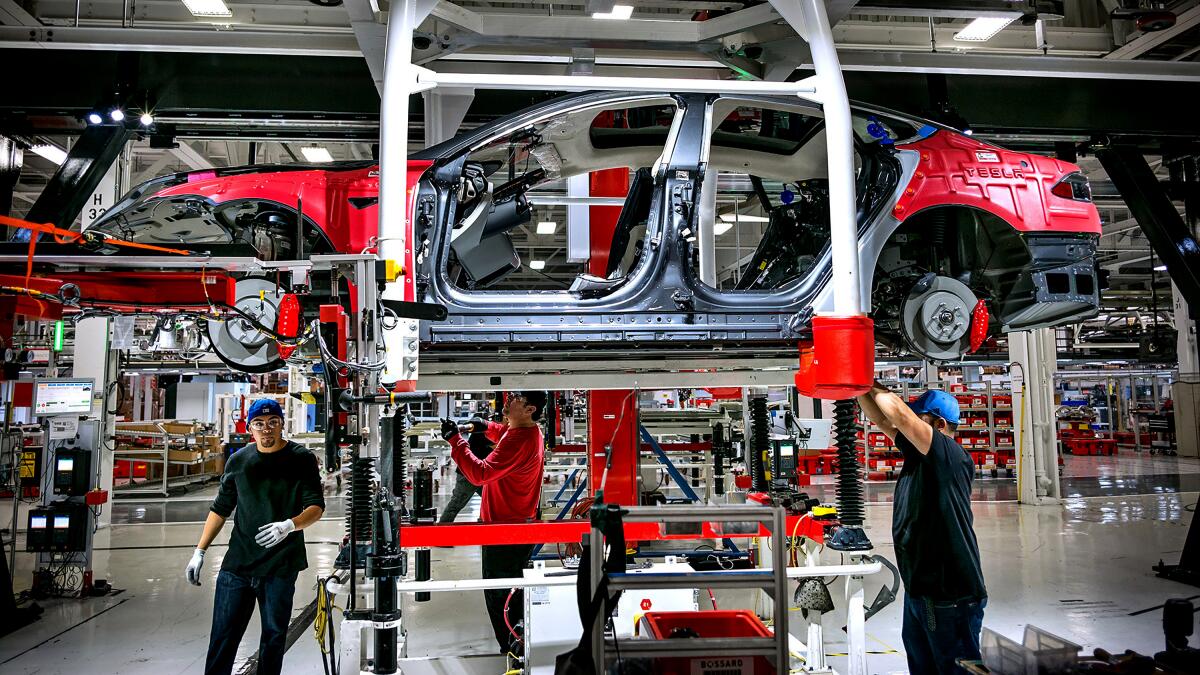Tesla scales back Model 3 output amid supply chain woes

- Share via
Tesla Inc. told workers it will temporarily halt some production at its car assembly plant in California for about two weeks, according to a person familiar with the matter.
Staff on a Model 3 production line in Fremont were told their line would be down from Monday until March 7, though some Model 3 employees were back in the factory Wednesday, said the person, who asked not to be identified because the information is private.
Tesla is battling supply-chain issues due to backlogs at ports and severe snowstorms affecting ground transport, according to another person familiar with the matter. Representatives for the Palo Alto electric-car maker didn’t respond to messages seeking comment.
Although production-line outages aren’t unusual for automakers, they cost the companies revenue. Tesla has said capacity issues at ports and semiconductor shortages are affecting its supply chain. Chief Financial Officer Zach Kirkhorn said on an earnings call last month the company is working to manage the disruptions, saying they “may have a temporary impact.”
“We are not overly concerned this supply chain/factory disruption changes the overall delivery trajectory for 1Q and 2021,” Dan Ives, a Wedbush Securities analyst with a neutral rating on Tesla’s stock, wrote in a research note Thursday.
Tesla shares fell $59.80, or 8.1% to $682.22 on Thursday.
The California plant is still the most important part of Tesla’s vehicle production base, with capacity to make an estimated 600,000 vehicles a year.
The affected workers were told they would be paid for Monday and Tuesday and not paid for Feb. 28, March 1, 2 and 3. They were advised to take vacation time if they had it.
Chief Executive Elon Musk also has opened a plant near Shanghai and is constructing facilities outside Berlin and in Texas.
Tesla has cut the price of its models 14 times in markets including China, Japan and France this year, according to GLJ Research founder Gordon Johnson, who has a sell rating on the stock.
“When considering Tesla had excess inventory in the fourth quarter of 2020, and has never been able to sell out its production capacity, we see the company as currently demand constrained, rather than production constrained,” Johnson wrote in a note this week.
Bloomberg writers Chunying Zhang and Dana Hull contributed to this report.






